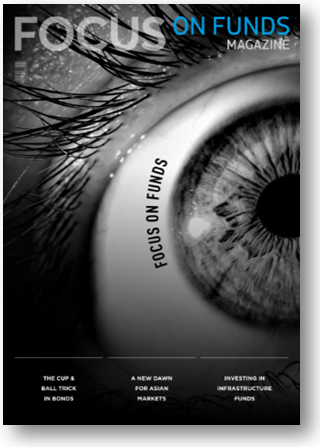Aug
2021
Focus on Funds: The hidden dangers of passive investing
DIY Investor
22 August 2021
Renaud de Planta
Pictet Asset Management
A cure-all. This is what passive investing represents to its growing band of proponents.
Equity tracker funds, we’re told, will rid the financial market of toxic elements and restore it to full health.
At first glance, it’s a persuasive argument. Poorly performing and expensive active managers have lingered in the system for too long, eroding returns for investors. Yet on deeper reflection, index-tracking products are no miracle remedy. They’re more like antibiotics: valuable when deployed in moderation, but likely to do more harm than good should their use become widespread.
Indeed, if passive equity funds were to continue their present growth trajectory, they would own all listed stocks by 2030. That could threaten the free-market economy. To see why, it’s necessary to look more closely at the workings of index investing and the structure of the passive fund industry.
Under index-tracking, the shares of companies with large weightings in the major indices attract more capital irrespective of their underlying performance. So in a system in which passive funds monopolise investment flows, the price of a security ceases to function as a gauge of a firm’s underlying prospects.
‘the price of a security ceases to function as a gauge of a firm’s underlying prospects’
This distorts the cost of equity and the price of credit. In such conditions, serious misallocations of capital would become the norm, creating asset bubbles on the one hand and leaving innovative firms starved of funds on the other. That wouldn’t be good for productivity or growth.
Likely to make matters much worse, though, is the concentration in the passive fund market. Essentially, the industry is an oligopoly, dominated by just three giants of asset management, who between them control almost three quarters of all passively-managed investment in stocks.
Drawing on seemingly limitless economies of scale, these investment powerhouses have been able to amass assets simply by slashing costs. And the more assets they gather, the more they can reduce fees and so continue their expansion, in contrast to active managers, whose room for manoeuvre is constrained by liquidity and therefore size.
This has major implications. As demand for index products grows, a greater proportion of the world’s listed companies will fall under the control of the three largest investment management groups.
Already, these firms collectively own close to 20 per cent of US large-cap companies. Taking the commoditisation of the asset management industry to its logical conclusion, entire industries could end up being swallowed up by the big three. And what happens when a small group of passive shareholders — investors who can’t vote with their feet — control most or all of the companies in a given industry? Two developments are likely. The first is a weakening of corporate governance standards. The second is an erosion of competitive forces, whereby the overlapping holdings of the dominant passive shareholders create the conditions for oligopolistic corporate practices to emerge.
Several recent academic studies have found that competition has diminished in industries where company shareholdings are concentrated among a small group of mostly passive investors, hurting consumers in the process.
In the US airline sector, in which the biggest firms are owned by the same large, predominantly passive institutional money managers, competition among carriers has dwindled, causing a spike in passenger air fares.
‘left unchecked, the growth of index-trackers has the potential to erode the market-based economy’
A similar situation is unfolding in US banking. Here, researchers have found a strong link between the accumulation of bank shares by a small group of index fund groups and a rise in deposit account servicing fees. A handful of other industries appear vulnerable to a passive annexation.
Those that are very capital intensive or already quite concentrated, such as utilities, energy and telecommunications are among the most obvious candidates. Passive dominance won’t happen overnight. Yet, left unchecked, the growth of index-trackers has the potential to erode the market-based economy, one industry at a time.
There is also a geopolitical dimension. If the passive giants end up owning large swaths of the capital market, they will also have a big say on the composition of stock and bond indices. Effectively able to decide which country or company should be included or excluded from those benchmarks, they would wield enormous influence over international capital flows. Note BlackRock’s recent call for China to be included in MSCI’s global equity indices. Some might see that as an excessive concentration of power.
None of this relieves the pressure on active managers to perform and offer better value to their clients. Nor does it deny the utility of passive investment. Index products offer benefits to investors. The problem is that if the majority of us embrace them, index-trackers threaten to sabotage the entire economic system. Much like antibiotics, if passive funds are overused, they will create more problems than they solve.
Renaud de Planta is chairman of Pictet Asset Management and managing partner of the Pictet Group
Click here to see the latest edition of Focus on Funds
Commentary » Exchange traded products Commentary » Exchange traded products Latest » Mutual funds Commentary » Mutual funds Latest


Leave a Reply
You must be logged in to post a comment.